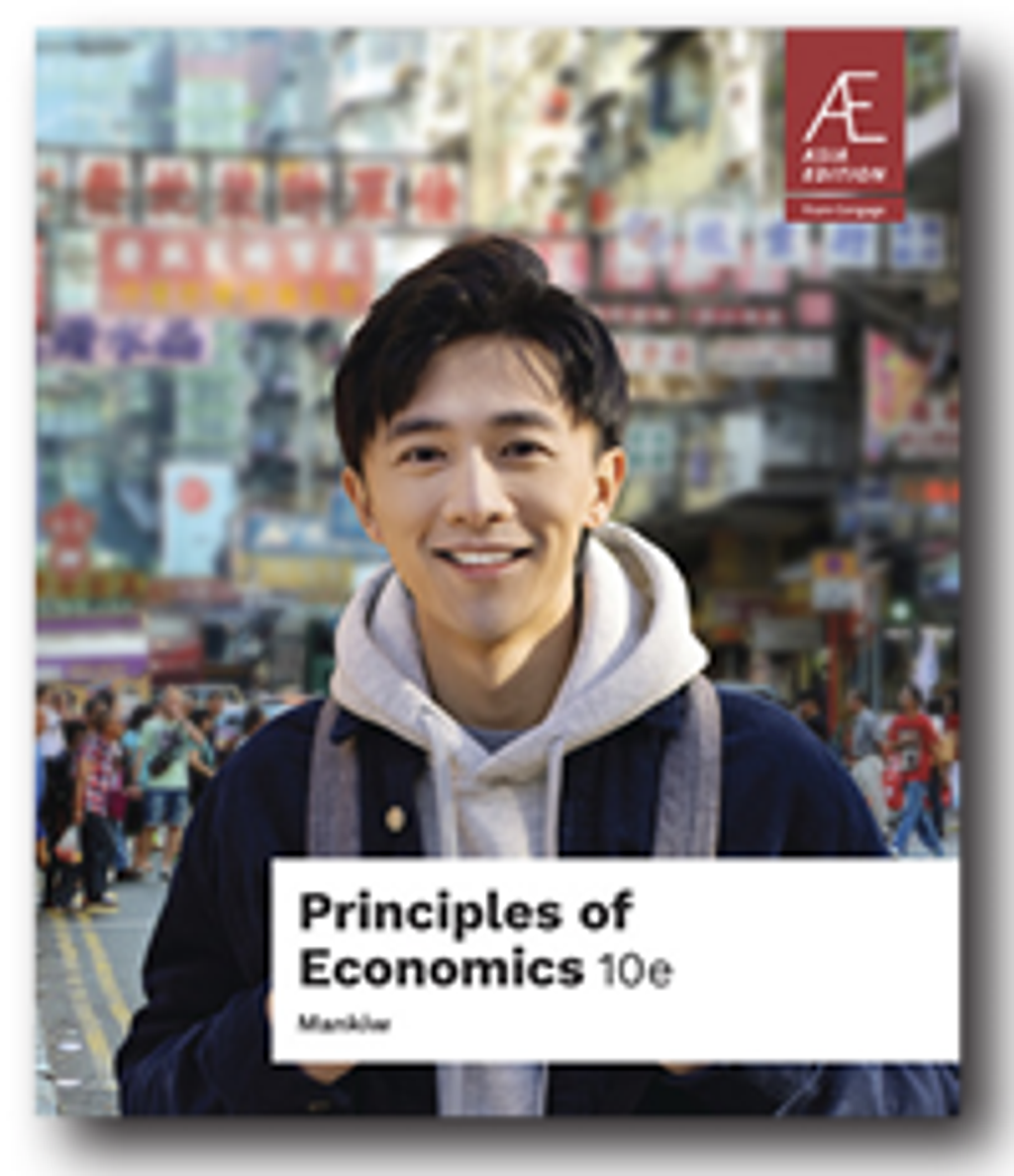Table of Contents
Part I: INTRODUCTION.
1. Ten Principles of Economics.
2. Thinking Like an Economist.
3. Interdependence and the Gains from Trade.
Part II: HOW MARKETS WORK.
4. The Market Forces of Supply and Demand.
5. Elasticity and Its Application.
6. Supply, Demand, and Government Policies.
Part III: MARKETS AND WELFARE.
7. Consumers, Producers, and the Efficiency of Markets.
8. Applications: The Costs of Taxation.
9. Application: International Trade.
Part IV: THE ECONOMICS OF THE PUBLIC SECTOR.
10. Externalities.
11. Public Goods and Common Resources.
12. The Design of the Tax System.
Part V: FIRM BEHAVIOR AND THE ORGANIZATION OF INDUSTRY.
13. The Costs of Production.
14. Firms in Competitive Markets.
15. Monopoly.
16. Monopolistic Competition.
17. Oligopoly.
Part VI: THE ECONOMICS OF THE LABOR MARKET.
18. The Markets for the Factors of Production.
19. Earnings and Discrimination.
20. Income Inequality and Poverty.
Part VII: TOPICS FOR FURTHER STUDY.
21. The Theory of Consumer Choice.
22. Frontiers in Microeconomics.
Part VIII: THE DATA OF MACROECONOMICS.
23. Measuring a Nation’s Income.
24. Measuring the Cost of Living.
Part IX: THE REAL ECONOMY IN THE LONG RUN.
25. Production and Growth.
26. Saving, Investment, and the Financial System.
27. Tools of Finance.
28. Unemployment and Its Natural Rate.
Part X: MONEY AND PRICES IN THE LONG RUN.
29. The Monetary System.
30. Money Growth and Inflation.
Part XI: THE MACROECONOMICS OF OPEN ECONOMICS.
31. Open-Economy Macroeconomics: Basic Concepts.
32. A Macroeconomic Theory of the Open Economy.
Part XII: SHORT-RUN ECONOMIC FLUCTUATIONS.
33. Aggregate Demand and Aggregate Supply.
34. The Influence of Monetary and Fiscal Policy on Aggregate Demand.
35. The Short-Run Tradeoff between Inflation and Unemployment.
Part XIII: FINAL THOUGHTS.
36. Six Debates over Macroeconomic Policy.

